While in Waterton Lakes National Park, Alberta, my field class visited beautiful Red Rock Canyon to practice our field observation skills. This is a deep gorge cut into red and green argillite of the Grinnell Formation. Here is the view across the middle of Red Rock Canyon, at Tony, Kaatje, and Tom on the opposite side:

We gave the students 45 minutes to explore the place and make observations before we met up to knit those observations together into an interpretation, making sure we didn’t miss any salient details. Here’s a collection of shots showing Team Rockies at work:
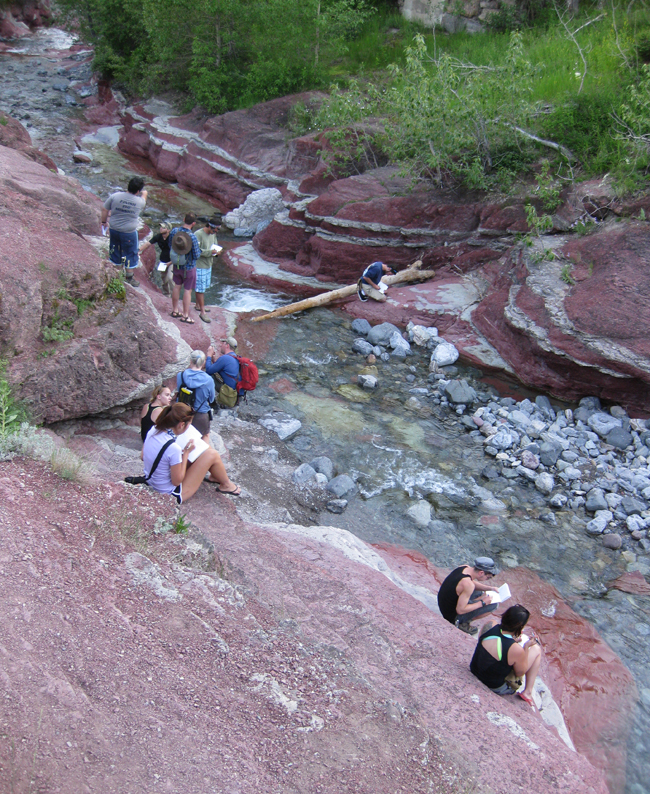
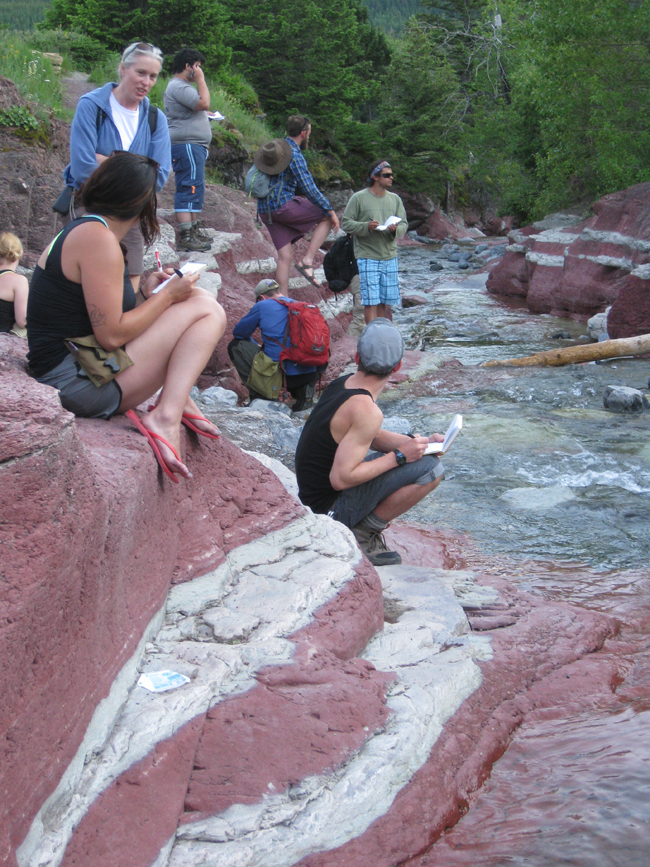
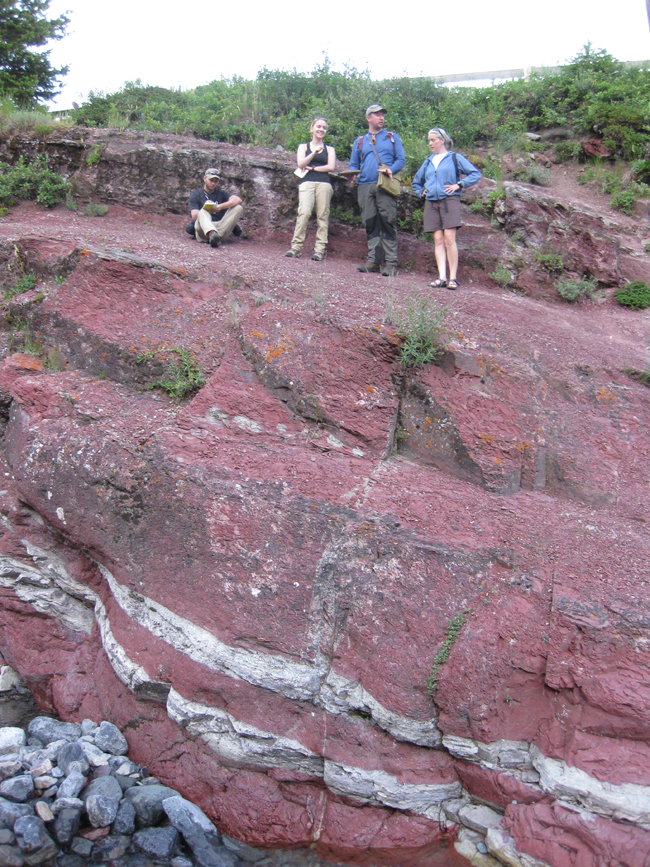
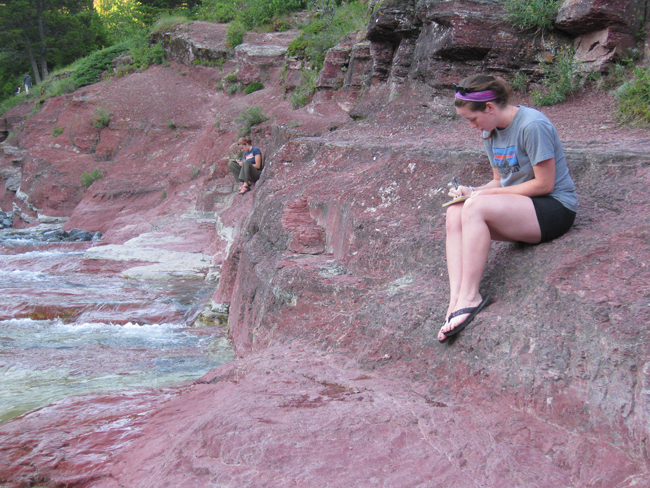
So what did they see there besides a bunch of very red rock?
There’s some structure to be discerned as well… noticed readily thanks to the few green argillite layers amid all the vermillion.
Here’s a view from the bridge at the upstream end of the pedestrian walkway:
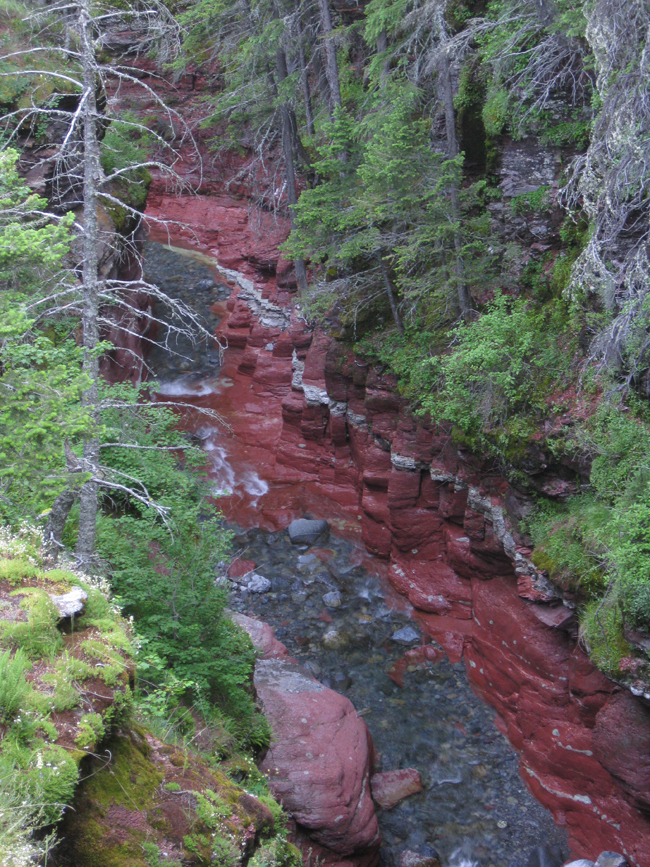
At first glance, that looks like a bunch of parallel faults showing a small amount of offset, but that’s just a trick of the perspective. Really, this is nothing more than a joint set, progressively weathered out to deeper and deeper levels. (So I guess those would be “fauxlts?”)
…But fear not; there are genuine faults to be seen here, too. Sean has noticed one obviously faulted outcrop:
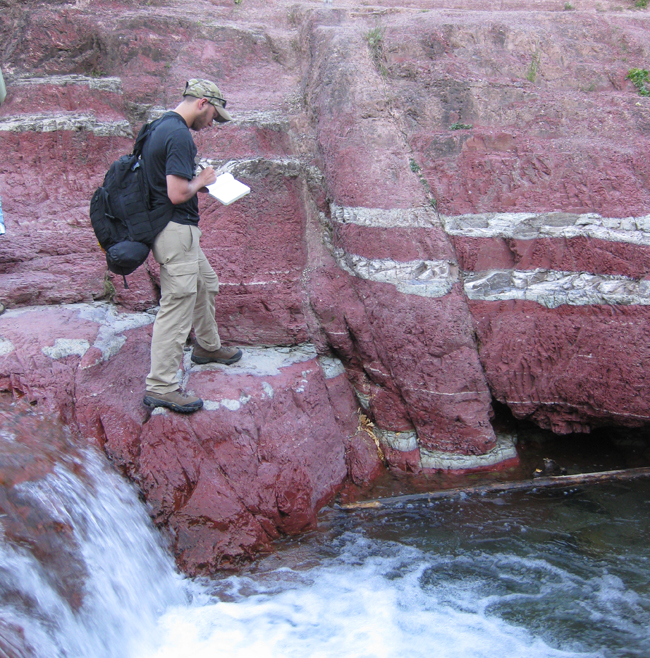
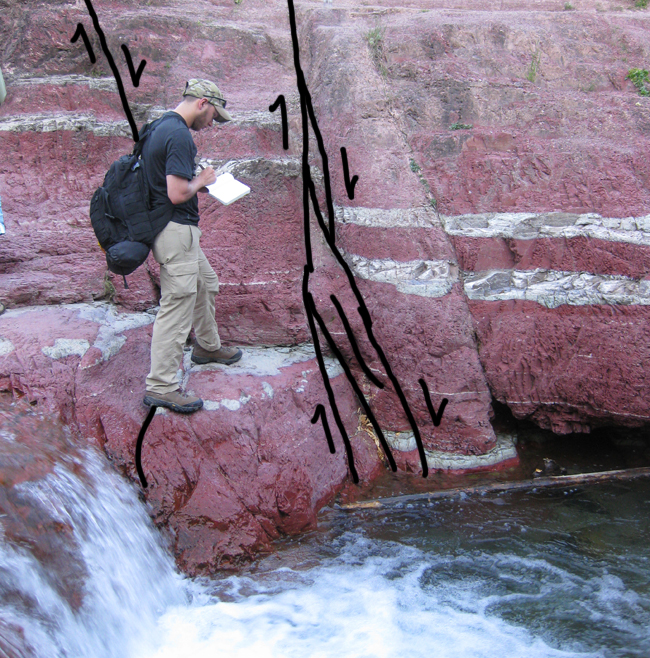
Here’s another example of these apparently normal faults:
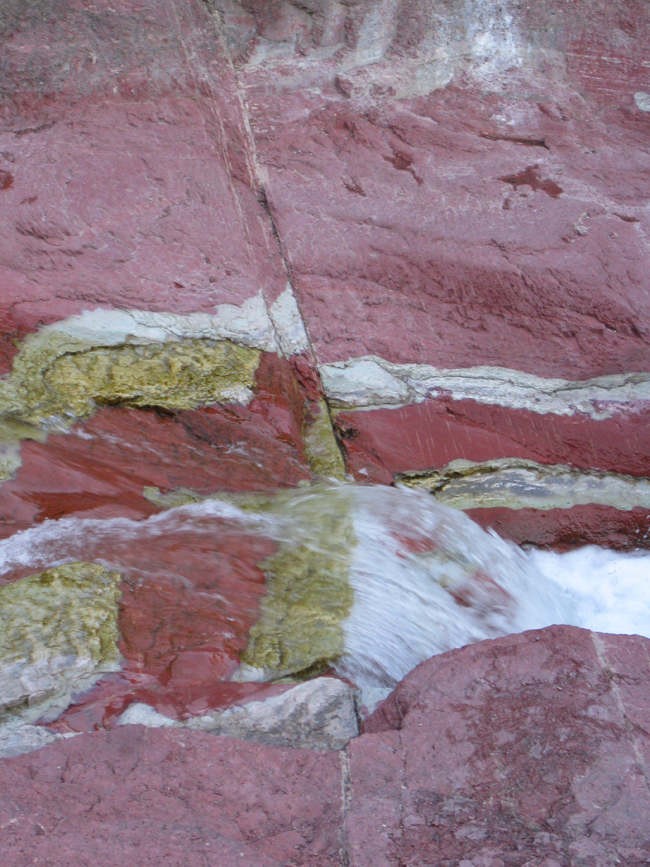
Note here the parallel joint set to the fault, highlighted with light green reduced chemistry, surrounded by so much oxidized rock:
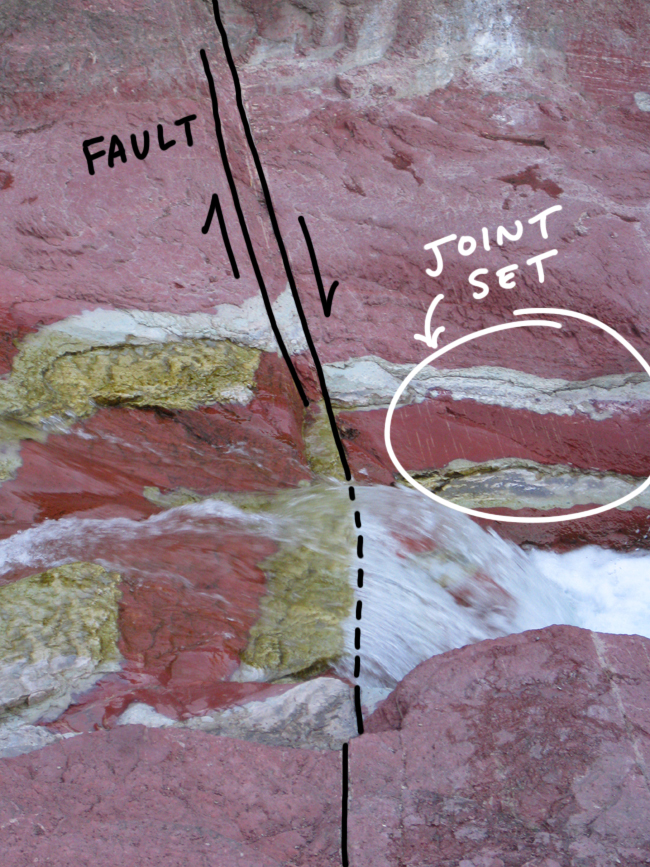
These joints probably pre-existed when the stresses that triggered faulting went to work on these rocks. Select joints, ideally positioned, were then exploited as faults.
Here’s another example showing the parallelism of the dominant joint set and the normal faults:
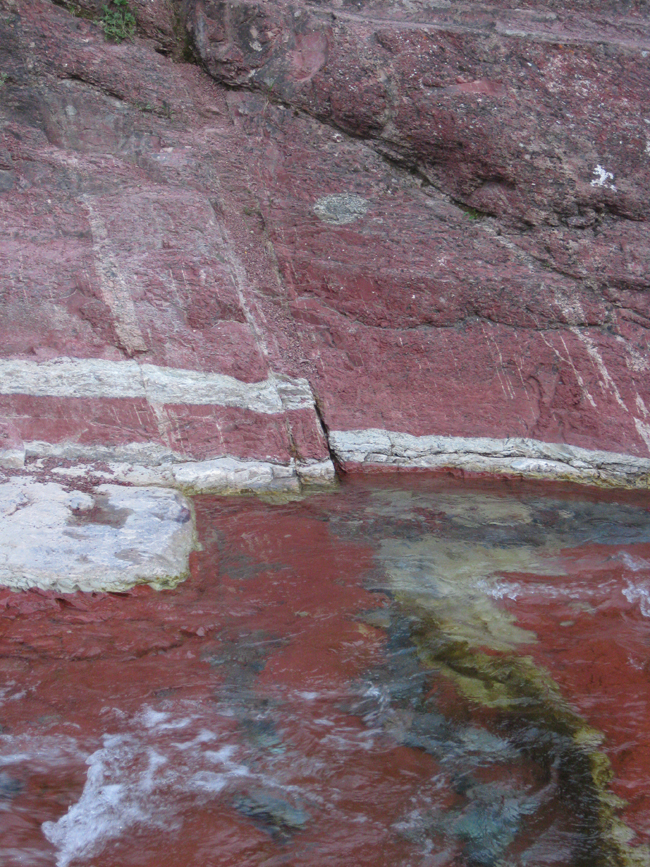
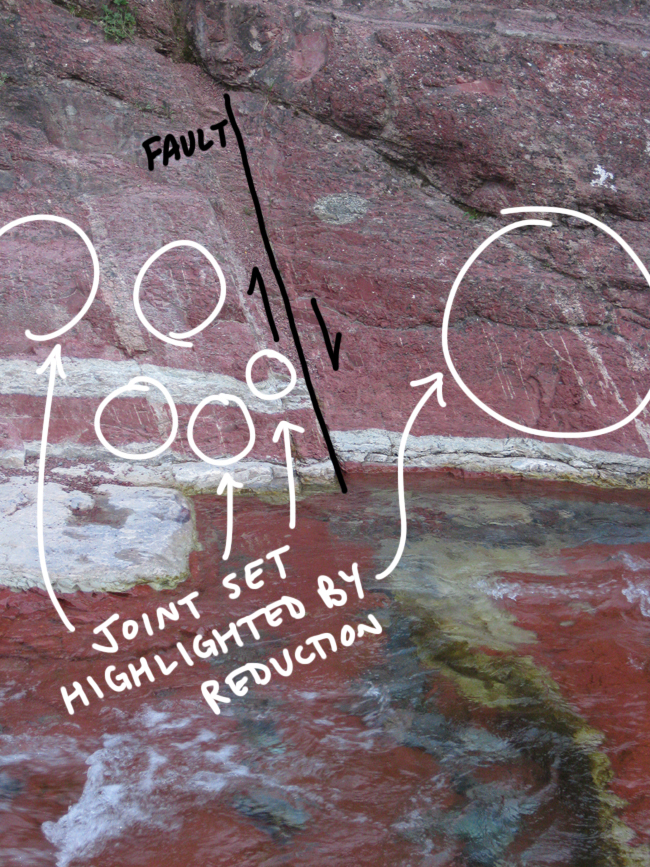
The reduction of the walls of the joints raises a question in my mind: was the reduction of the “strata” primary or diagenetic? The color is pretty much the same between the two, and in places, such as just left of the fault above, you can see the reducing front wicking upward from the bedding parallel reduced zones into the joints and faults.
Hmmmmmm.
